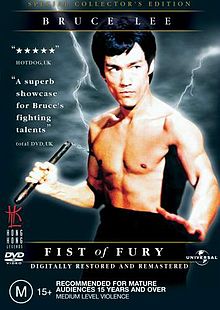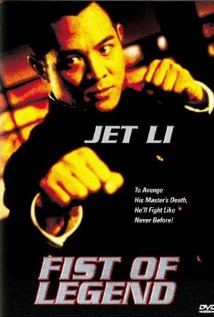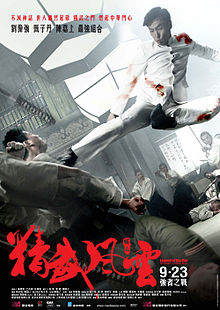For a long time I wanted to ask whether there is any difference between 'Fist of legend' and 'Legendary Fist', the first being the name of "Jing wu ying xiong" (original title) starring Jet Li.
The movie is 2 decades old but it is still vivid, I wonder why the translators chose 'of' approach, really why? And do these twos represent one thing or there are some nuances.
Also, is above situation the same as:
'Heart of (a) lion' vs 'Lion/lionesque heart'?
And to go deeper, can we coin 'Legendfist' after the "Richard the Lionheart" taking into account 'Ironfist' movie (a.k.a. 'Under the Gun') too?
This 'of' constructions did hit me in Zarathustra's book as well: "pure of eye, and no loathing lurking", in-here going farther as a variant of eye of pureness/purity.
Add-on:
I did my own investigation just to get more confused. The reason, putting in the mix one more movie translated as Legend of the Fist!!! How this wording fits in the whole picture, NO IDEA!



First off, the sequel spans 38 years from 1972 to 2010.
Probably translators followed the pattern of 1972's Fist of Fury, Fist of Legend being a remake (1994). Both movies have the first two kanjis identical - 精武門 vs 精武英雄
The first two kanjis are 'Jing Wu' which is the name of the famous Chinese martial arts school.
The third kanji in Fist of Fury is 'GATE' thus 'Jing Wu Gate'.
The third and fourth kanjis in Fist of Legend are 'Fine&Military' meaning 'HERO' thus 'Jing Wu Hero', by the way Jet Li's movie 'Hero' has the same two kanjis 英雄.
Three beloved actors did these three movies (in chronological order): Bruce Lee, Jet Li, Donnie Yen. Another remake was released in 2010 as Legend of the Fist a.k.a. 'The Return of Chen Zhen'.
Again translators threw dust in my eyes, the original name is 精武風雲 factored to:
The first two kanjis are 'Jing Wu', again.
The third and fourth kanjis in Legend of the Fist are 'WIND&CLOUD' thus 'Jing Wu Storm', because AFAK Chinese denote 'storm' as 'wind&cloud'.
Hope someone will shed light on GATE-HERO-STORM triad and where the LEGEND came from.
